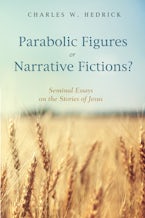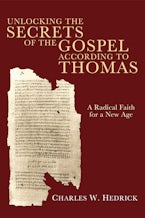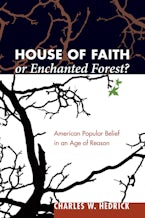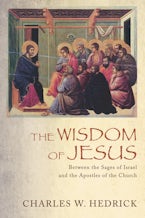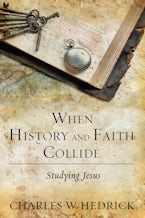Hedrick contends that parables do not teach moral and religious lessons; they are not, in whole or part, theological figures for the church. Rather, parables are realistic narrative fictions that like all effective fiction literature are designed to draw readers into story worlds where they make discoveries about themselves by finding their ideas challenged and subverted--or affirmed.
The parables have endings but not final resolutions, because the endings raise new complications for careful readers, which require further resolution. The narrative contexts and interpretations supplied by the evangelists constitute an attempt by the early church to bring the secular narratives of Jesus under the control of the church's later religious perspectives. Each narrative represents a fragment of Jesus's secular vision of reality.
Finding himself outside the mainstream of parables scholarship, both ecclesiastical and critical, Hedrick explored a literary approach to the parables in a series of essays that, among other things, set out the basic rationale for a literary approach to the parables of Jesus. These early essays form the central section of the book. They are published here in edited form along with unpublished critiques of a thoroughgoing literary approach and his response.
Charles W. Hedrick is Distinguished Emeritus Professor of Religious Studies at Missouri State University in Springfield, Missouri. He is the author of numerous books and articles relating to the study of Christian origins. His most recent book is The Wisdom of Jesus (Cascade Books, 2014).
"It took me awhile to get used to Charlie Hedrick's proposal for how we should read the parables, but once I did, it brought me to a kind of epiphany: They're stories! They're just stories! In these foundational chapters we get more of the argument Hedrick has been making for the last fifteen years, an argument that should now have its day in court."
--Stephen J. Patterson, George H. Atkinson Professor of Religious Studies, Willamette University; author of The Lost Way (2014) and Beyond the Passion (2004)
"This important collection of essays shows Hedrick at his critical and analytical best. He relentlessly challenges the reader to probe within the story, reading parables on their own merits, as narratives that reflect and speak to the early first-century agrarian world of Palestine. Striving to recover the stories as Jesus himself may have told them, Hedrick strips away the theological and evangelistic frames and interpretations that go beyond the language of the stories themselves. The results are engaging stories of Jesus that are often left open-ended, with complications begging for resolution."
--Steven R. Johnson, Professor of Religion, Lycoming College; author of Seeking the Imperishable Treasure: Wealth, Wisdom, and a Jesus Saying (2008)
"Charles Hedrick's brilliant new set of studies treats the parables of Jesus as stories with their own internal logic, rather than as symbolic statements, and represents the current cutting edge of parables scholarship. It offers detailed and systematic analysis of the parables, informed by both historical scholarship and literary theory. The book will be of immense interest to students of the gospels, the traditions behind the gospels, and the historical Jesus."
--William Arnal, Professor, University of Regina; author of The Symbolic Jesus (2005)

